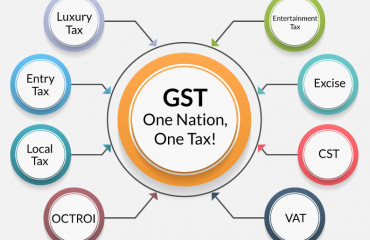
NEW DELHI : Goods and Services Tax (GST) receipts of the central and state governments are set to further moderate in June after scaling a historic high in April riding on financial year end spike in sales, showed data on e-way bills.
NEW DELHI : Goods and Services Tax (GST) receipts of the central and state governments are set to further moderate in June after scaling a historic high in April riding on financial year end spike in sales, showed data on e-way bills.
Generation of electronic permits needed for goods transportation within and across states slowed down in May to 73.6 million, from 75.2 million in April. The record high e-way bill generation seen in March of 78.2 million had contributed to a record ₹1.68 trillion in GST receipts in April as businesses cleared inventory to meet fiscal year targets.
E-way bills, however, represents only transactions in goods and does not reflect the recovery seen in contact intensive services sectors such as tourism which is expected to support GST collections in coming months.
India's factory output continued to expand in May for the 11th consecutive month, while service sector growth continued to strengthen in May with companies reporting the quickest increase in business activity since April 2011, S&P Global had said earlier this month quoting its purchase managers' indices. Manufacturing PMI was at 54.6 in May, little-changed from 54.7 in April, while services PMI moved up to 58.9 in May from 57.9 in April. The indices show expansion at 50 or above and contraction below this mark.
According to experts, expanding the scope of GST-related reporting requirements have immensely helped in boosting revenue collections as it ensured that sales do not go unreported. The government has made e-invoicing or real time electronic reporting of business-to-business transactions compulsory for businesses with sales of ₹20 crore or above from April this year, down from the ₹50 crore threshold earlier. This has improved the tax authorities' surveillance of economic activity and has made it hard to under-report sales. E-invoicing is applicable for services and exports too. With GST-related reporting having improved, the focus of tax authorities now is to ensure the quality of the reported information by conducting departmental audits. Central Board of Indirect Taxes and Customs (CBIC) is now trying to conclude audits for the first two years of GST.
